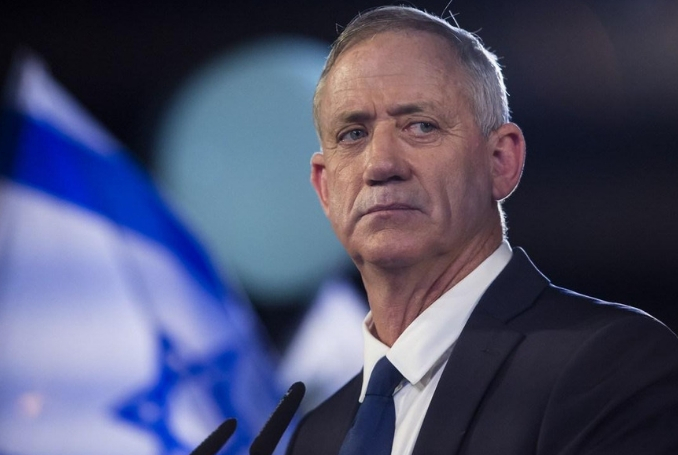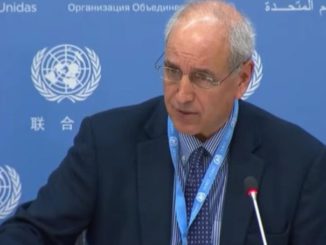
By Ramona Wadi
In his latest interview with the Times of Israel, former Israel Defence Forces Chief of Staff Benny Gantz makes a point which the international community and the Palestinian Authority persist in ignoring.
He has been reticent about stating what outcome he envisages for Palestinian statehood or prospects for statehood. Instead, he has suggested to “leave the endpoint”, with no discussion on Palestinian statehood or the two-state hypothesis and instead focus on the process from a Zionist perspective.
This is what the international community has been doing all along, albeit in the guise of promoting and working towards Palestinian statehood. For several years the two-state compromise has been declared obsolete and yet is still referred to as the only solution.
If the international imposition is making the likelihood of Palestine as a distinct entity disappear piece by piece, its aims, although not clearly stated, are in collusion with the Zionist colonial project. Gantz speaks about the Zionist project in his interview and his words could have been uttered by any international diplomat. What was omitted – the ethnic cleansing of Palestine to pave the way for the colonial entity – has also disappeared from the international discourse.
The two-state imposition defined Palestine’s fragmentation and eliminated all other options for Palestinians while allowing Israel to continue with its colonial expansion. Meanwhile, news reports, especially during Israel’s current election campaign, have shifted focus on what the prospective Israeli prime minister thinks about Palestinian statehood and the processes which have delegitimized Palestinian liberation by coercing the leadership to adhere to the two-state paradigm.
Coercion sees Israel and the international community finding common ground to prevent Palestinian liberation by any and all means. For Israel, security narratives take precedence and form the premise of an entire spectrum of violations that contribute to the dispossession of the people of Palestine. The international community’s endorsement of Israel’s security narrative is also woven into the two-state agenda.
Commenting on the terms used by the international community to describe Palestine’s elusive prospects, Gantz declared,
“Everyone is looking at these words from the perspective of the endpoint and is alarmed by them. If I were to tell you know ‘two states’, what does that mean?”
To state that everyone is alarmed is a blatant lie. Israel stands to gain either way through the “process”, which is Gantz’s preferred way of evading accountability. Likewise, the international community is in no hurry to see a Palestinian state emerge; it has also endorsed the process and continues to profit from it, as does Israel.
The Palestinian state as imagined within the parameters of the two-state hypothesis is still a colonized space. Not speaking about colonization does not eliminate the fact that the international community has not only endorsed but also normalized, all of Israel’s ongoing rights violations.
If the two-state solution materialized, the same equation would prevail; Palestinians would still be disadvantaged while Israel would be under no obligation to rectify the damage caused by its violence, nor would it be held to account.
Only Palestinians would be alarmed by the notion of two states as dictated by the international community. It spells the continuation of the Nakba and a plethora of possibilities to manage the deprivation and harm caused by the international community’s upholding of Israel’s demands.
– Ramona Wadi is a staff writer for Middle East Monitor, where this article was originally published. She contributed this article to the Palestine Chronicle.







